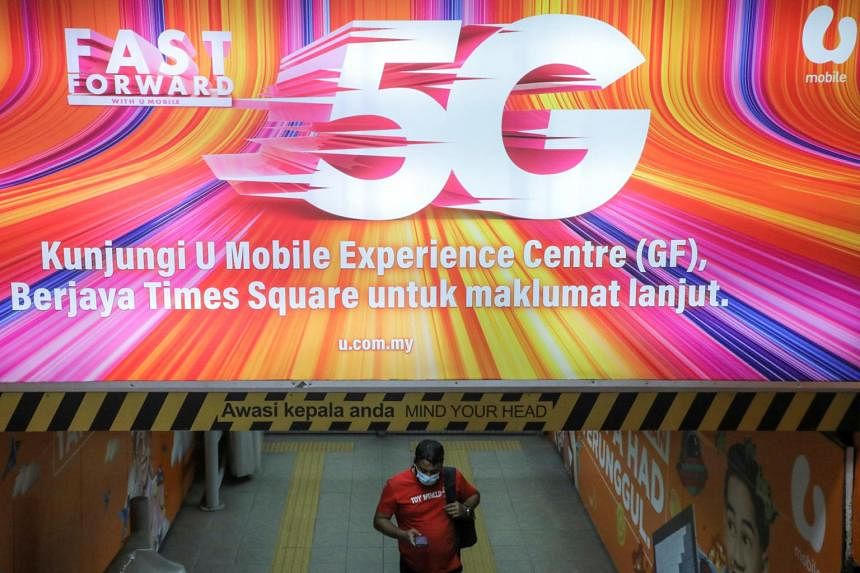KUALA LUMPUR - Malaysia's roll-out of the transformative fifth-generation (5G) mobile service is finally under way, after four telecommunications companies agreed to share in the state-run infrastructure vehicle that owns the network.
Digital Nasional Berhad (DNB) announced on Friday that the four mobile service providers had executed agreements to take up a nearly two-thirds stake in the company. This comes amid swirling speculation of snap polls that could send the politically sensitive deal back to the drawing board.
Industry sources also told The Straits Times that two other major telcos, Maxis and U Mobile - controlled by politically connected tycoons Ananda Krishnan and Vincent Tan respectively - have agreed to purchase wholesale capacity from DNB along with the four stakeholders. Previously, the two telcos had staunchly refused to go along with the government's 5G plans.
"The six telcos will be DNB customers pending board approval by the end of the month," said a source with knowledge of the negotiations.
YTL Communications and state-controlled Telekom Malaysia have both taken a 20 per cent stake, while DiGi and Celcom have 12.5 per cent each ahead of their impending merger.
The government, via the Ministry of Finance, retains a 35 per cent stake - a golden share that grants special rights in areas such as ownership, sale or transfer of shares.
Based on DiGi's announcement that its stake is worth RM178.5 million (S$54.8 million), DNB is valued at about RM1.5 billion.
DNB was launched 18 months ago but the implementation of the super-fast 5G network has been repeatedly delayed as telcos and politicians pushed back, claiming a lack of transparency and unfair pricing. The government has insisted the use of a state-run single wholesale network would drastically reduce the cost of mobile data from the existing 4G system.
Maxis and U Mobile - whose largest stakeholder is Singapore's investment company Temasek - have led other telcos in pushing for a dual wholesale network regime, in part so that they can have a say in how 5G infrastructure is rolled out.
This resulted in the government deciding in March to open up equity in DNB to private operators to allow industry players to protect their interests. The deal was supposed to have been concluded by June, but holdups in negotiations have left Malaysia even further behind its regional peers in offering the technology.
The government had said before these delays that it expected to create RM650 billion in economic value and 750,000 jobs by 2030 from the use of 5G.


